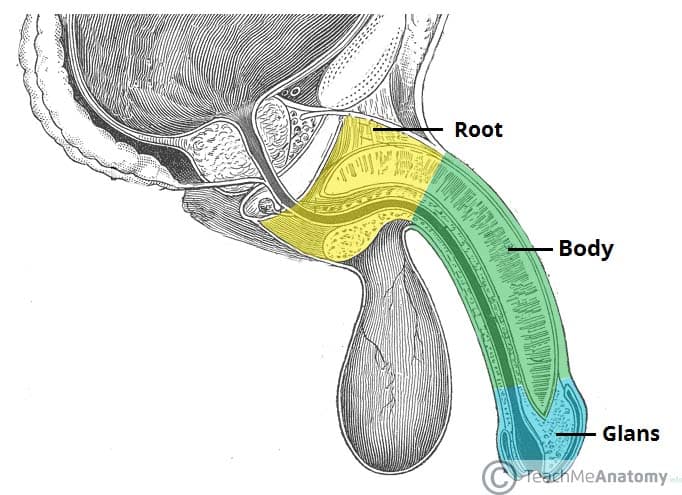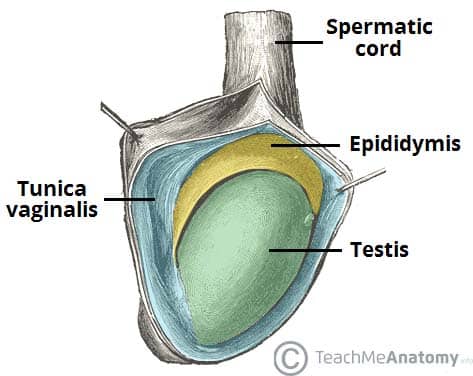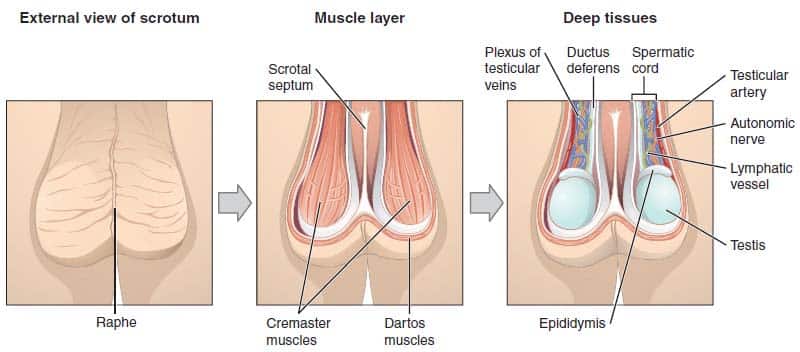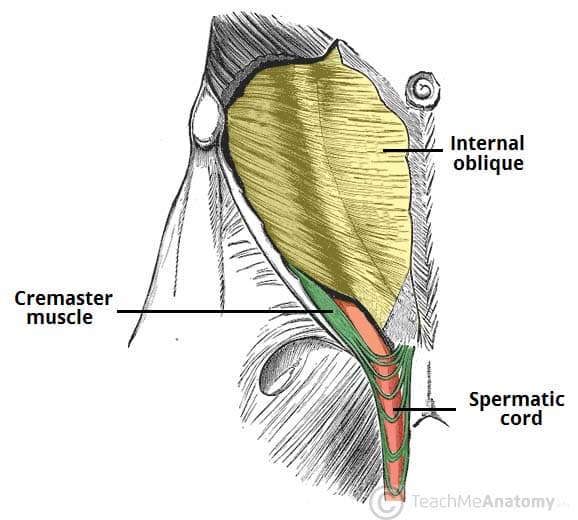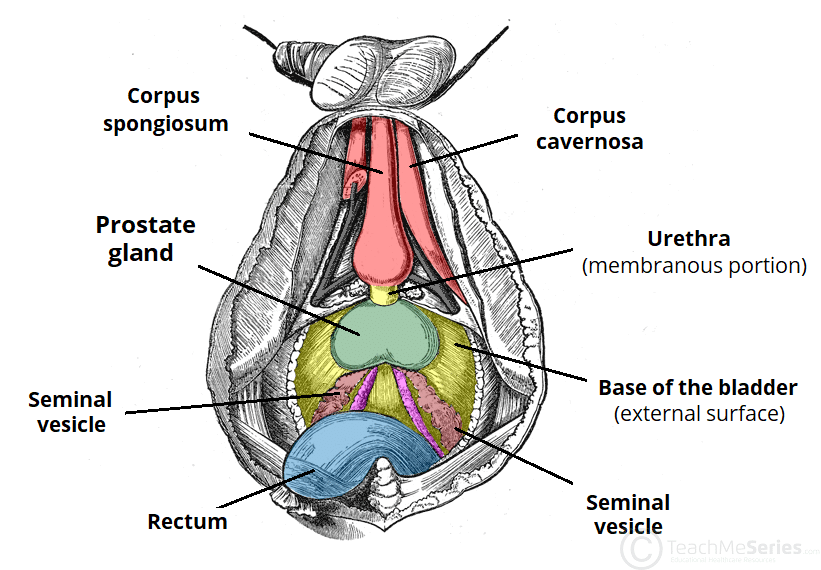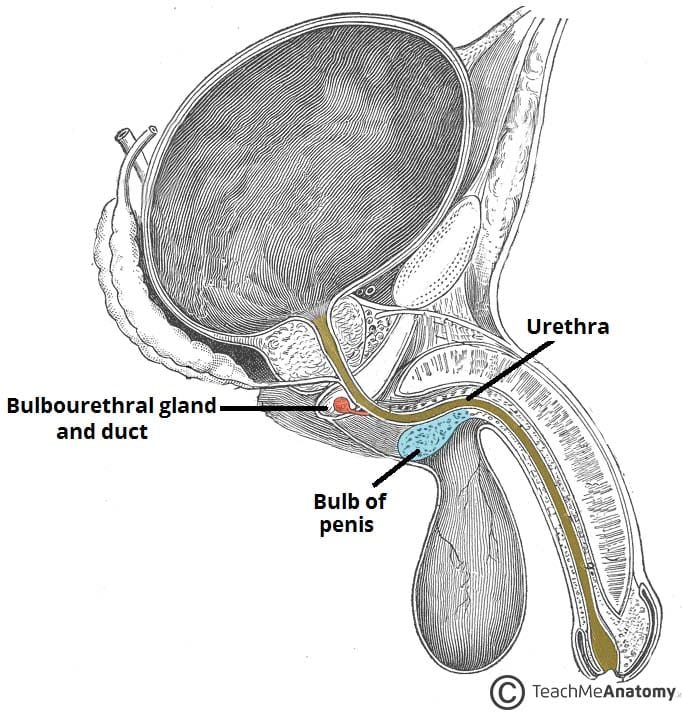- The Basics
- Head
- Neuroanatomy
- Neck
- Thorax
- Back
- Upper Limb
- Lower Limb
- Abdomen
- Pelvis
- 3D Body
The Male Reproductive System
The male reproductive system mainly resides within the pelvis. Some tissues sit outside of the pelvis, in the scrotum, which provides a cooler environment. The male reproductive system can be split into seven parts: the penis, the testes and epididymis, the scrotum, the spermatic cord, the prostate gland, the bulbourethral glands and the seminal vesicles.
The penis has three main anatomical sections: the root (where the penis is fixed to the pelvic floor), the body (the length of the penis) and the glans (where the urethral opening is located).
The testes and epididymis are located in the scrotum, suspended by the spermatic cord. This is the location of sperm production, maturation and storage.
The scrotum is a fibromuscular sac located posteriorly to the penis. The dartos muscle is located deep to the skin and helps adjust the surface area of the scrotum, and therefore its internal temperature.
The spermatic cord is a collection of blood vessels, nerves and ducts that connect the testes to the pelvic cavity. Many important structures run in this bundle, including the testicular artery, pampiniform plexus of testicular veins and vas deferens.
The prostate gland sits inferiorly to the bladder. It secretes enzymes into the semen which maintain the semen’s fluid state. These enzymes enter the prostatic urethra via the prostatic ducts. The prostate’s anatomy consists of three zones, the central, transitional and peripheral zones, where different pathologies arise.
The bulbourethral glands, or Cowper’s glands, are located posterolaterally to the membranous urethra. They produce a mucus secretion which serves as lubrication, expels any urine residue from the urethra and neutralises residual acidity within the urethra.
The seminal vesicles sit superiorly to the prostate, and drain a fructose-rich alkaline fluid into the prostatic urethra.
In this section, learn more about the male reproductive system, including the penis, testes and the accessory glands.
